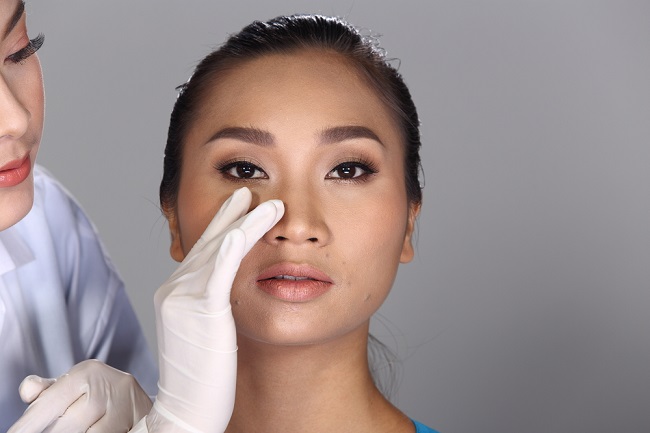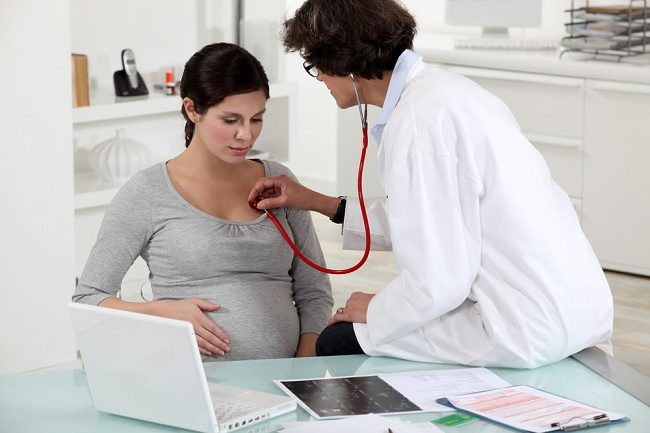Burkitt lymphoma or Burkitt lymphoma is a type of non-Hodgkin's lymphoma, which grows very quickly and is aggressive. This condition is usually associated with impaired immune system. The spread of cancer cells in Burkitt's lymphoma can occur to all parts of the body, including the brain and spinal cord.
Burkitt lymphoma can occur in any age group, but is more common in children. This disease is often associated with viral infections, such as human immunodeficiency virus (HIV) and Epstein-Barr virus (EBV).

There are three types of Burkitt lymphoma, namely:
1. Endemic Burkitt lymphoma
Endemic Burkitt lymphoma is a type of Burkitt lymphoma that occurs in Africa. This type is often associated with chronic malaria and EBV infection.
The part of the body that is most often attacked by endemic Burkitt lymphoma are the facial and jaw bones. However, in some cases, the intestines, kidneys, ovaries, and breasts, can also be attacked.
2. Sporadic Burkitt Lymphoma
Sporadic Burkitt Lymphoma is Burkitt lymphoma that occurs outside of Africa. This condition is most commonly associated with EBV infection.
The part most often attacked by Burkitt lymphoma of this type is the lower digestive tract (the end of the small intestine and the beginning of the large intestine).
3. Immunodeficiency-related lymphoma
Immunodeficiency-related lymphoma is Burkitt's lymphoma associated with a weakened immune system. This condition is often associated with the use of immunosuppressant drugs or inherited disorders.
Symptoms of Burkitt Lymphoma
Symptoms of Burkitt lymphoma vary, depending on the type. On endemic Burkitt lymphomaa, tumors or enlarged lymph nodes usually begin in the facial bones, jaw, and spread to the central nervous system.
On sporadic Burkitt lymphoma and immunodeficiency-related lymphoma Tumors or enlarged lymph nodes usually begin in the intestines, reproductive organs (such as the ovaries and testes), then spread to the liver, spleen, and spinal cord.
In addition, other symptoms that can be experienced by people with Burkitt lymphoma are:
- Unexplained fatigue
- Prolonged fever
- Often sweats at night
- Appetite down
- Weight loss
- Swelling of the stomach
Causes of Burkitt Lymphoma
The exact cause of Burkitt lymphoma is not known. However, infection with Epstein-Barr virus (EBV) and human immunodeficiency virus (HIV), is often associated with this condition.
In addition, a number of factors can increase the risk of developing Burkitt lymphoma, including:
- Conditions that weaken the immune system, such as HIV/AIDS, HTLV (human T-cell lymphotrophic virus) infection, and chemotherapy or radiotherapy
- Autoimmune diseases, such as rheumatoid arthritis, lupus, or celiac disease
- Stomach disease due to infection Helicobacter pylori
Although including a dangerous disease, Burkitt lymphoma is not contagious and is not inherited or inherited from parents.
When to go to the doctor
Check with a doctor if you experience enlargement or lumps on your face, jaw, neck, or stomach, especially if accompanied by the complaints mentioned above.
If you have conditions that affect your immune system, such as HIV/AIDS and autoimmune diseases, have regular check-ups with your doctor to monitor your condition.
If you have been diagnosed with Burkitt lymphoma, do the examination according to the schedule given by the doctor and follow the treatment until it is declared complete by the doctor. This is because Burkitt lymphoma is a disease that is at risk for recurrence.
Diagnosis of Burkitt Lymphoma
The doctor will ask about the complaints and symptoms experienced by the patient. After that, the doctor will perform a physical examination, especially in the head, neck, and stomach area, to check for swollen lymph nodes in these areas.
Furthermore, to diagnose Burkitt lymphoma, the doctor will perform the following supporting tests:
- Biopsy, to take a sample of lymph node tissue. The tissue sample will be examined in a laboratory to determine the type of cells that grow and develop in the lymph nodes
- Blood tests, to determine the number of blood cells and to assess liver and kidney function
- Scans with X-rays, CT scans, MRI, ultrasound, and PET scans, to see the position, size, and spread of the lymphoma
- Bone marrow aspiration, to see the spread of cancer cells in the bone marrow
- HIV test, to detect HIV infection. The examination is carried out by antibody tests, PCR tests, and antibody-antigen combination tests
Burkitt Lymphoma Treatment
After the patient is confirmed to have Burkitt lymphoma, the doctor will perform various types of treatment, such as:
- Chemotherapy
Several types of drugs that can be given to treat Burkitt's lymphoma are cyclophosphamide, doxorubicin, metrotrexate, vincristine. These drugs can be given as a single or a combination therapy.
- DrugsMonoclonal antibody class drugs, such as rituximab can also be given to encourage the immune system to work better to destroy cancer cells.
- RadiotherapyRadiotherapy using X-rays can be done to kill cancer cells.
- Bone marrow transplantA bone marrow (stem cell) transplant is performed to replace damaged bone marrow with healthy tissue.
- OperationIn some cases of Burkitt lymphoma, surgery may be needed to remove the blocked portion of the intestine or the ruptured tumor.
Complications of Burkitt Lymphoma
Burkitt lymphoma can cause complications such as:
- Intestinal obstruction
- Tumor lysis syndrome
- infertility
- Liver disfunction
- Spread or metastasis of cancer cells to other organs and body parts
Prevention of Burkitt Lymphoma
Burkitt lymphoma cannot be prevented. However, there are several steps that can be taken to reduce the risk of developing Burkitt lymphoma, namely:
- Have safe sex and not use drugs to prevent HIV/AIDS transmission
- Checking with the doctor regularly if you have an autoimmune disease or are taking immunosuppressant drugs for the long term









